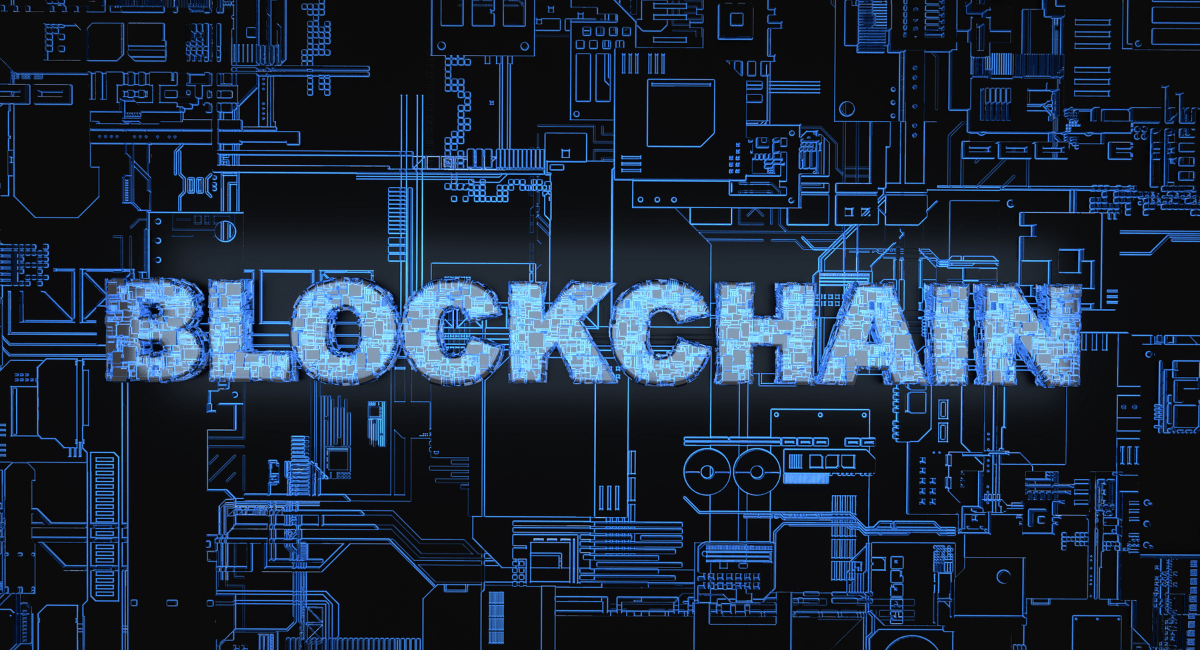Artificial Intelligence (AI) and blockchain technology represent two transformative innovations that are increasingly intersecting to create new possibilities across various industries. The integration of AI in blockchain, often referred to as “AI on the blockchain” or “AI blockchain,” offers several potential benefits, ranging from enhanced security and privacy to improved efficiency and transparency.
One of the key areas where AI is being leveraged within blockchain is in enhancing security protocols. The technology already provides a decentralized and immutable ledger, but AI can further strengthen security measures by analyzing vast amounts of data to detect patterns indicative of cyber threats or fraudulent activities. AI-powered algorithms can continuously monitor blockchain networks for suspicious behavior, helping to prevent hacking attempts, data breaches, and other security vulnerabilities.
Moreover, AI algorithms can also be used to enhance consensus mechanisms in networks. Consensus algorithms, such as Proof of Work (PoW) or Proof of Stake (PoS), ensure the agreement and validation of transactions. AI algorithms can optimize these consensus mechanisms by dynamically adjusting parameters based on network conditions, improving scalability, energy efficiency, and overall network performance.
In addition to security enhancements, AI can also improve the efficiency and scalability of networks. By automating processes such as transaction verification, smart contract execution, and data validation, AI algorithms can reduce latency and enhance throughput, enabling blockchain networks to handle a higher volume of transactions without compromising performance. This is particularly beneficial for applications requiring real-time processing, such as supply chain management, financial transactions, and Internet of Things (IoT) devices.
Furthermore, AI and machine learning algorithms can analyze data stored on the blockchain to extract valuable insights and predictive analytics. By leveraging the transparent and immutable nature of blockchain data, AI can identify trends, patterns, and correlations that may not be apparent through traditional data analysis methods. This enables organizations to make data-driven decisions, optimize business processes, and uncover new opportunities for innovation and growth.
Another promising application of AI in blockchain is in the development of decentralized autonomous organizations (DAOs). DAOs are self-governing entities that operate on blockchain networks through smart contracts. By integrating AI algorithms into DAOs, organizations can automate decision-making processes, optimize resource allocation, and enhance governance mechanisms. This could lead to more efficient and transparent organizational structures, reducing reliance on centralized authorities and intermediaries.
However, despite the potential benefits of AI in blockchain, there are also challenges and considerations that need to be addressed. These include issues related to data privacy and security, algorithmic bias and transparency, interoperability between AI and blockchain platforms, and regulatory compliance. Additionally, the integration of AI in blockchain requires specialized skills and expertise in both domains, highlighting the importance of interdisciplinary collaboration and research.
The integration of AI in blockchain holds significant promise for transforming various industries by enhancing security, efficiency, transparency, and innovation. By leveraging AI algorithms to strengthen security protocols, improve consensus mechanisms, optimize network performance, analyze blockchain data, and automate decision-making processes, organizations can unlock new opportunities for value creation and disruption. However, addressing challenges related to privacy, bias, interoperability, and regulation will be essential to realizing the full potential of AI in blockchain.
Also, read- Top 10 Blockchain AI Trends That You Need To Know
Importance of AI in Blockchain
The integration of Artificial Intelligence (AI) in Blockchain technology holds immense importance across various industries due to its potential to enhance security, efficiency, transparency, and innovation. Several key aspects underscore the significance of AI in Blockchain:
- Enhanced Security: AI algorithms can bolster security measures within networks by analyzing vast amounts of data to detect patterns indicative of cyber threats or fraudulent activities. By continuously monitoring Blockchain networks, AI can identify and mitigate potential vulnerabilities, reducing the risk of hacking attempts, data breaches, and other security breaches. Additionally, AI-powered encryption techniques can strengthen data protection and ensure the integrity of transactions on the Blockchain.
- Improved Efficiency: AI algorithms can automate processes such as transaction verification, smart contract execution, and data validation, thereby enhancing the efficiency and scalability of Blockchain networks. Through optimization and streamlining of these processes, AI can reduce latency, enhance throughput, and enable Blockchain networks to handle higher transaction volumes without compromising performance. This is particularly crucial for applications requiring real-time processing and high-speed transactions.
- Data Analysis and Insights: AI can analyze the vast amounts of data stored to extract valuable insights, patterns, and predictive analytics. By leveraging the transparent and immutable nature of Blockchain data, AI algorithms can identify trends, correlations, and anomalies that may not be apparent through traditional data analysis methods. This enables organizations to make data-driven decisions, optimize business processes, and uncover new opportunities for innovation and growth.
- Automation of Decision-making: Integrating AI into Blockchain enables the development of decentralized autonomous organizations (DAOs) that operate through smart contracts. AI algorithms can automate decision-making processes, optimize resource allocation, and enhance governance mechanisms within DAOs. This could lead to more efficient and transparent organizational structures, reducing reliance on centralized authorities and intermediaries.
- Enhanced Interoperability: AI can facilitate interoperability between different platforms and networks by providing standardized interfaces, protocols, and data formats. This enables seamless integration and communication between disparate systems, fostering collaboration, and data sharing across ecosystems. AI-powered interoperability solutions can unlock new opportunities for cross-industry collaboration, innovation, and value creation.
- Predictive Maintenance and Supply Chain Optimization: AI algorithms can analyze data from IoT devices and sensors recorded on the Blockchain to predict equipment failures, optimize maintenance schedules, and streamline supply chain operations. By leveraging real-time data and predictive analytics, organizations can minimize downtime, reduce operational costs, and enhance overall efficiency.
- Regulatory Compliance: AI-powered regulatory compliance solutions can help organizations ensure compliance with regulatory requirements and industry standards within Blockchain networks. By automating compliance checks, monitoring transactions, and identifying potential risks, AI can streamline regulatory reporting processes and mitigate legal and compliance-related challenges.
The integration of AI in crucial for unlocking the full potential of Blockchain technology across various industries. By enhancing security, efficiency, transparency, and innovation, AI-powered Blockchain solutions can drive significant value creation, disrupt traditional business models, and enable new opportunities for growth and collaboration in the digital economy.
Just like Cupid’s Arrow, we are always aiming to connect our clients with the latest advancements in technology, ensuring that they stay ahead of the curve in today’s fast-paced digital world. 💻💖
— VLink Inc (@VLinkInc) February 14, 2024
Whether it’s #AI, #Blockchain, #IoT, or any other cutting-edge tech, we are here… pic.twitter.com/ALUIK6ejmn
Top 10 ways Blockchain with the help of AI can revolutionize the manufacturing industry
The combination of Blockchain and Artificial Intelligence (AI) has the potential to revolutionize the manufacturing industry in numerous ways, offering solutions to longstanding challenges and unlocking new opportunities for efficiency, transparency, and innovation. Here are ten key ways in which Blockchain, with the help of AI, can transform the manufacturing sector:
- Supply Chain Transparency: It can provide an immutable and transparent record of every stage of the manufacturing process, from raw material sourcing to final product delivery. AI algorithms can analyze this data to track products in real-time, verify authenticity, and ensure compliance with quality and safety standards.
- Predictive Maintenance: AI algorithms can analyze data from IoT sensors embedded in manufacturing equipment and recorded on the Blockchain to predict equipment failures and schedule maintenance proactively. This minimizes downtime, reduces maintenance costs, and extends the lifespan of machinery.
- Inventory Management: It’s combined with AI can optimize inventory management by providing real-time visibility into stock levels, demand forecasts, and supply chain logistics. AI algorithms can analyze historical data to predict inventory requirements accurately and automate replenishment processes.
- Product Quality Assurance: AI-powered image recognition and machine learning algorithms can inspect product quality during the manufacturing process. By analyzing images and sensor data recorded on the Blockchain, AI can identify defects, deviations, and anomalies, ensuring that only high-quality products reach the market.
- Smart Contracts: Blockchain-enabled smart contracts can automate and enforce agreements between manufacturers, suppliers, distributors, and customers. AI algorithms can analyze contract terms, monitor performance metrics, and trigger automated actions based on predefined conditions, streamlining contract management processes and reducing disputes.
- Demand Forecasting: AI algorithms can analyze historical sales data, market trends, and customer behavior patterns recorded on the Blockchain to forecast demand accurately. This enables manufacturers to optimize production schedules, allocate resources efficiently, and minimize inventory carrying costs.
- Customized Manufacturing: AI algorithms can analyze customer preferences, feedback, and purchasing history recorded on the Blockchain to personalize products and tailor manufacturing processes accordingly. This enables manufacturers to offer customized products at scale, enhancing customer satisfaction and brand loyalty.
- Energy Efficiency: AI algorithms can optimize energy usage in manufacturing facilities by analyzing data from IoT sensors and energy meters recorded on the Blockchain. By identifying energy-saving opportunities and adjusting equipment settings dynamically, AI can reduce energy consumption, lower operational costs, and minimize environmental impact.
- Supply Chain Traceability: Blockchain can provide end-to-end traceability of products throughout the supply chain, from raw material extraction to final product assembly. AI algorithms can analyze this data to verify the authenticity of products, detect counterfeit goods, and ensure ethical sourcing practices, enhancing brand reputation and consumer trust.
- Continuous Improvement: Blockchain combined with AI facilitates continuous improvement initiatives by providing a wealth of data for analysis and optimization. AI algorithms can identify inefficiencies, bottlenecks, and areas for improvement in manufacturing processes, enabling manufacturers to iterate, innovate, and stay competitive in a rapidly evolving market.
Overall, the integration with AI offers transformative opportunities for the manufacturing industry, enabling enhanced transparency, efficiency, customization, and sustainability across the entire value chain. By leveraging the combined strengths of these technologies, manufacturers can drive innovation, reduce costs, and deliver greater value to customers in the digital age.
Conclusion
In conclusion, the convergence of technology with Artificial Intelligence presents a formidable force capable of revolutionizing the manufacturing industry. The synergistic potential of these technologies offers a plethora of transformative opportunities, ranging from supply chain transparency and predictive maintenance to customized manufacturing and continuous improvement initiatives.
By leveraging immutable and transparent ledger to record and track every aspect of the manufacturing process, coupled with AI’s analytical prowess and predictive capabilities, manufacturers can unlock unprecedented levels of efficiency, productivity, and innovation. This fusion enables real-time visibility into supply chain operations, ensures product quality and authenticity, optimizes inventory management, and enables personalized customer experiences.
Furthermore, the integration of AI facilitates proactive maintenance strategies, energy efficiency optimizations, and smart contract automation, streamlining processes, reducing costs, and minimizing environmental impact. Additionally, the combination of these technologies empowers manufacturers to harness vast amounts of data for actionable insights, driving continuous improvement and fostering a culture of innovation and agility.
Ultimately, the AI is poised to redefine the manufacturing landscape, offering manufacturers the tools they need to thrive in an increasingly competitive and digitally-driven market. Embracing this technological convergence can unlock new opportunities for growth, enhance operational resilience, and drive sustainable value creation for manufacturers and consumers alike. As the manufacturing industry continues to evolve, those who embrace the potential of Blockchain with AI stand to lead the charge towards a more efficient, transparent, and innovative future.
Stay informed with daily updates from Blockchain Magazine on Google News. Click here to follow us and mark as favorite: [Blockchain Magazine on Google News].
Disclaimer: Any post shared by a third-party agency are sponsored and Blockchain Magazine has no views on any such posts. The views and opinions expressed in this post are those of the clients and do not necessarily reflect the official policy or position of Blockchain Magazine. The information provided in this post is for informational purposes only and should not be considered as financial, investment, or professional advice. Blockchain Magazine does not endorse or promote any specific products, services, or companies mentioned in this posts. Readers are encouraged to conduct their own research and consult with a qualified professional before making any financial decisions.

